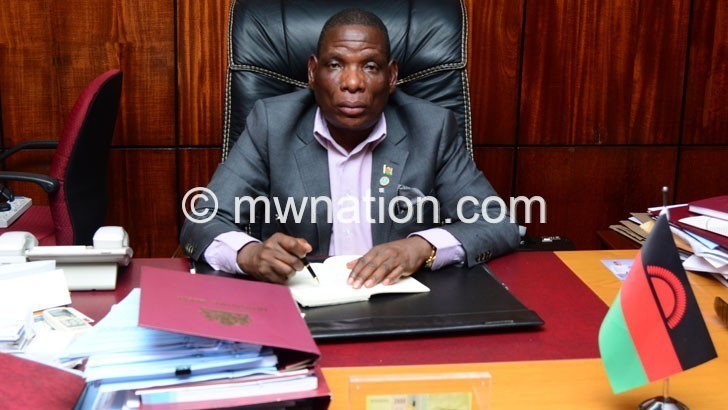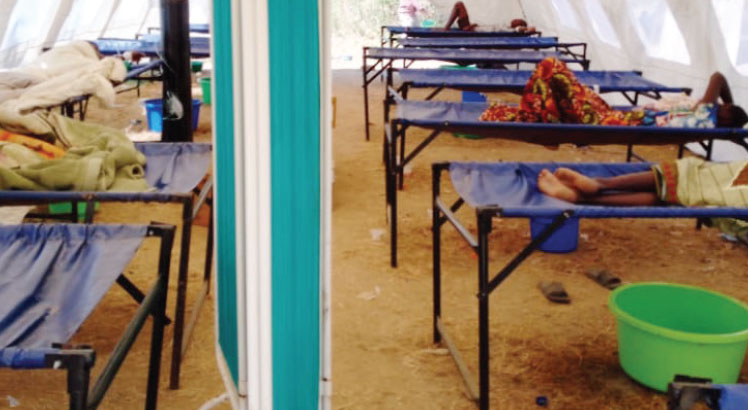Former minister of Finance Joseph Mwanamvekha and United Democratic Front (UDF) have asked government to quickly resolve issues that have led to a stalemate in negoations for a new programme with the International Monetary Fund (IMF).
Mwanamvekha and UDF acting national publicity secretary Yusuf Mwawa expressed their concerns in separate statements released yesterday.
Mwanamvekha: ECF supported structural reforms
Their reactions followed sentiments by the Minister of Finance and Economic Affairs Sosten Gwengwe on Tuesday that talks over the new Extended Credit Facility (ECF) between Malawi Government and IMF would delay until next month because of unresolved issues such as debt sustainability plan.
Mwanamvekha, who served as minister of Finance in former president Peter Mutharika’s Cabinet between May 2019 and June 2020, said he was disappointed that the Tonse Alliance administration continues to blame the former governing Democratic Progressive Party (DPP) of allegedly mismanaging the economy.
He said: “This is on record, and that empirical statistics and evidence is available to confirm this fact. All macroeconomic fundamentals were stable and on a decline trajectory.
Mwawa: Delay will undoubtedly affect livelihoods
“Inflation dropped from 30 to a single digit, inflation also dropped from over 30 percent to an average of 12 percent and exchange rate remained stable for over three years.”
Mwanamvekha said import cover hovered between four and six months from less than a month when DPP took over in 2014.
He faulted the cancellation of the ECF by the Tonse Alliance administration which he said led to Malawi losing $101 million.
Mwanamvekha said the ECF supported structural reforms, addressed several important gaps that had previously been identified in public financial management and also met all quantitative performance criteria for the programme.
On his part, Mwawa said it was high time the government heeded IMF advice and reviewed recommended measures to improve the realism of financial projections, sharpen debt sustainability analysis, enhance the quality of fiscal consolidation and improve the tailoring of structural economic conditions.
He said: “The utter failure by government to satisfy fiscal requirements in accessing the facility will undoubtedly affect livelihoods of common people, whose economic hurdles and suffering is cushioned through accessibility of such financial facilities”
Mwawa observed that further delay of the programme has led in part to the rising cost of living for Malawians, devaluation of the kwacha, scarcity of forex, and shortage of fuel.
Ironically, during UDF’s tenure in 2002 the IMF programme went off track for failure to achieve targets on inflation.
Inflation rate rose from 19 percent in 2000 to 22.2 percent before hitting 25.3 percent in July 2002. Foreign aid dried due to over expenditure by the Bakili Muluzi regime.
Market analyst Bond Mtembezeka yesterday said the IMF programme should not be the only way the government should explore to avert worsening economic situation.
He said: “Presently it seems the government is banking solely on it which is a wrong approach because the programme is at the discretion of the IMF.
“There are other ways through which the government can explore and they are tied to the priorities at this point such as energy, food security and solving the foreign exchange problem among others.”
The post IMF stalemate worries UDF, Mwanamvekha appeared first on The Nation Online.
 Moni Malawi
Moni Malawi 

